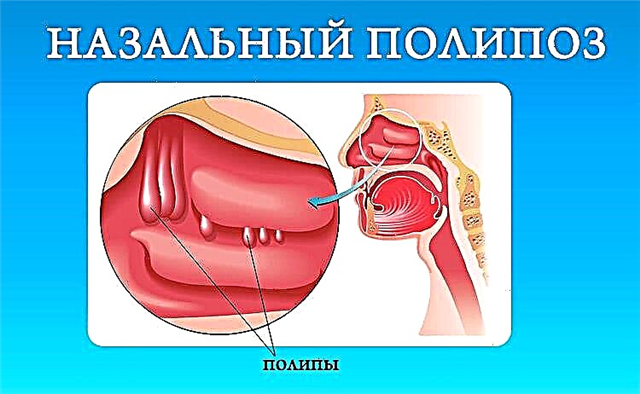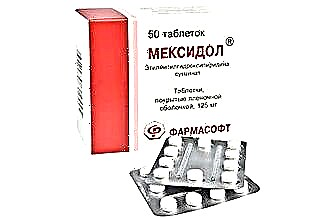The main causes of ear congestion lie in the differences in internal and external pressure on the eardrum. Excessive onslaught of air on the membrane leads to its stretching, as a result of which the sound signal passing through the outer ear is not amplified. The result is a weakening of sound, which leads to a feeling of stuffy ears.
The absence of discomfort in the ear membrane is possible only when the internal and external pressure is absolutely equal. Changes in the state of the membrane can be caused by physiological and pathological factors that contribute to the formation of a vacuum in the tympanic cavity. This inevitably leads to a differential pressure, which is signaled by ear popping.
Etiology

The eardrum is an airtight thin membrane that separates the middle ear cavity from the external auditory canal. It is one of the key components of the sound-conducting section of the auditory analyzer. The membrane is innervated by nerve branches from the large tympanic nerve, which communicates with the glossopharyngeal branch.
When you create excessive pressure on the ear membrane, there is a risk of perforations forming in it, leading to a sharp decrease in hearing.
The eardrum plays an important role in transmitting sound waves to the structures of the inner ear, where they are converted into electrical impulses to the brain. When stretched, the elasticity of the membrane naturally decreases, therefore, when a sound signal passes, it practically does not vibrate. For this reason, there is no sound amplification, which is indicated by ear congestion.
Physiological causes
 Why does ears clog? The onset of a symptom is not always due to systemic disorders or pathologies in the organ of hearing. Most often, stretching of the ear membrane is due to the influence of physiological factors, which include:
Why does ears clog? The onset of a symptom is not always due to systemic disorders or pathologies in the organ of hearing. Most often, stretching of the ear membrane is due to the influence of physiological factors, which include:
- great physical activity;
- quick rise in the elevator;
- regular flights;
- take the fast trains;
- immersion under water;
- rapid ascent to the mountains.
The above causes of ear congestion are due to destabilization of the pressure on the ear membrane. A sharp increase in external pressure leads to the indentation of the membrane inside the ear, which contributes to the appearance of uncomfortable or painful sensations. To eliminate the symptom, experts recommend making several swallowing movements that help open the mouth of the Eustachian tube, through which the middle ear is ventilated.
Common causes of ear blockages include the formation of sulfur plugs. If they completely block the ear canal, it leads to hearing loss and discomfort. If a sulfur plug is found, you should seek help from an otolaryngologist who, using a special hook-shaped tweezers, will remove it from the ear canal.
Pathological causes
Why does the ear stick? Experts warn that the sudden onset of a symptom may be associated with disturbances in the functioning of the auditory analyzer or internal organs and systems. A feeling of congestion can be a sign of the development of the following diseases:
- eustachitis;
- otitis media;
- allergic rhinitis;
- cholesteatoma;
- exostosis of the auditory canal;
- otomycosis;
- sinusitis;
- inflammation of the auditory nerve;
- trauma;
- otosclerosis;
- hypertension.
In most cases, the causes of ear congestion without pain lie in the use of excessive amounts of medications that have an ototoxic effect. Strong intoxication of the body leads  to an increase in cellular turgor, which is due to a violation of the processes of removing an excess amount of intercellular fluid from tissues. Thus, swelling of the mucous membranes occurs, which leads to blockage of the auditory tube and, accordingly, impaired ventilation of the middle ear.
to an increase in cellular turgor, which is due to a violation of the processes of removing an excess amount of intercellular fluid from tissues. Thus, swelling of the mucous membranes occurs, which leads to blockage of the auditory tube and, accordingly, impaired ventilation of the middle ear.
To understand the main reasons for the occurrence of discomfort in the organ of hearing, it is worth considering the most common causes of the development of ear pathologies. Timely elimination of diseases contributes to the relief of unpleasant symptoms, which include ear congestion.
Allergic rhinitis
Why does one ear stick? A common cause of congestion is swelling of the mucous membranes of the nasopharynx, provoked by rhinitis. Allergic rhinitis is an inflammation of the mucous membrane of the nasopharynx resulting from the penetration of allergens into the body. The provocateurs of the inflammatory process can be:
- animal hair;
- medications;
- Food;
- volatile chemicals;
- pollen of plants.
Important! Untimely treatment of rhinitis can lead to the development of exudative otitis media, characterized by the accumulation of transudate in the ear and a sharp deterioration in hearing.
As a result of strong irritation of the ciliated epithelium in the nasopharynx, vasomotor processes occur, which lead to a change in the tone of the vessels and an increase in their permeability. For this reason, the nasopharyngeal mucosa swells, which leads to blockage of the mouth of the Eustachian tube. As a result, the ventilation of the ear cavity is disturbed, which leads to the formation of a vacuum in it. Thus, high atmospheric pressure causes the eardrum to retract into the ear, which results in congestion.
Eustachite
 Why is the ear blocked? What to do with congestion? According to statistics, very often discomfort occurs due to the development of eustachitis. The disease is characterized by inflammation of the mucous membrane in the auditory canal, the diameter of which does not exceed 2-2.5 mm. Catarrhal processes in the tissues lead to swelling and a decrease in the lumen in the auditory canal, as a result of which negative pressure forms in the middle ear.
Why is the ear blocked? What to do with congestion? According to statistics, very often discomfort occurs due to the development of eustachitis. The disease is characterized by inflammation of the mucous membrane in the auditory canal, the diameter of which does not exceed 2-2.5 mm. Catarrhal processes in the tissues lead to swelling and a decrease in the lumen in the auditory canal, as a result of which negative pressure forms in the middle ear.
In most cases, Eustachitis occurs as a result of infection of the upper respiratory tract with pathogens. The danger of ENT disease lies in the high risk of pathogens entering the auditory analyzer by the tubular route. This can lead to the development of acute otitis media and severe complications leading to persistent hearing loss, mastoiditis, meningitis, etc.
Trauma
Ear injuries are one of the possible causes of obstructed ears and ear membrane deformities. The impaired functioning of the main parts of the auditory analyzer leads to the development of pathological processes characterized by hearing loss, the appearance of a sensation of fluid transfusion in the ear cavity, etc. Why is the right ear stuffing up?
The causes of discomfort in the ears can be:
- acoustic trauma - destruction of tissues of the organ of hearing, caused by prolonged exposure to superstrong sounds;
- barotrauma - pathologies in the middle ear and membrane resulting from a sharp change in external pressure;
- vibration trauma - damage to the structures of the inner ear associated with prolonged exposure to strong vibrations;
- mechanical trauma - physical damage to the soft and bone structures of the organ of hearing, leading to impaired conduction of sound signals by the eardrum and auditory ossicles.
Ears congestion without pain
In most cases, the onset of an unpleasant symptom without pain is due to the absence of inflammatory processes in the tissues. Why does it stick its ears just like that? Uncomfortable sensations can occur with the development of such pathologies:
 otitis externa;
otitis externa;- aerootitis;
- benign tumors;
- sensorineural hearing loss.
Important! Sensorineural hearing loss is treated only at the acute stage of development, which lasts no more than 1 month.
It should be noted that ignoring the problem is often the reason for the progression of pathologies. If the congestion persists within a few days, you should seek the help of a specialist. Timely examination and elimination of the causes leads to the restoration of normal hearing and the disappearance of discomfort.
Congestion when swallowing
If the ears are blocked when swallowing, this indicates the presence of inflammatory processes in the nasopharynx. In the absence of pathologies during swallowing, there is a contraction of the muscles responsible for opening the mouth of the Eustachian tube. Thus, air enters the middle ear cavity, which leads to an equalization of the internal and external pressure on the eardrum.
Why does the left ear get stuck when swallowing? The occurrence of an uncomfortable sensation is associated with edema of the ciliated epithelium, as a result of which, during swallowing, the mouth of the auditory tube does not open, respectively, the ventilation of the tympanic cavity is disturbed. Pathological processes are most often observed when:
- sinusitis;
- adenoids;
- pharyngitis;
- tonsillitis.
The symptom can be eliminated with the help of vasoconstrictor drops, which help to reduce tissue swelling. To restore the drainage and ventilation function of the auditory tube, nasal drops such as Nasonex, Galazolin, Nazivin, Avamis, Nasobek, etc. can be instilled twice a day.

 otitis externa;
otitis externa;

